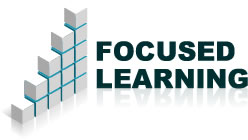MULTIPLE CHOICE TEST TAKING TIPS
Studying for a multiple choice exam requires a special method of preparation. Multiple choice exams ask a student to recognize a correct answer among a set of options that include 3 wrong answers (called distracters ), rather than asking the student to produce a correct answer entirely from his/her own mind. For many reasons, students commonly consider multiple choice exams easy. Perhaps the most obvious reasons are that:
- The correct answer is guaranteed to be among the possible responses. A student can score points with a lucky guess.
- Many multiple choice exams tend to emphasize basic definitions or simple comparisons, rather than asking students to analyze new information or apply theories to new situations.
Despite these factors, however, multiple choice exams can actually be difficult. Consider that:
- Because multiple choice exams contain many questions, they force students to be familiar with a much broader range of material.
- Multiple choice exams also usually expect students to have a greater familiarity with details such as specific dates, names, or vocabulary. Students cannot easily "bluff" on a multiple choice exam.
GENERAL TEST TAKING STRATEGIES
- Read each question carefully and thoroughly.
- Before answering, look at all of the answer choices.
- Pace yourself if the test is timed. At the start, glance through to determine the number of questions on the test.
Answering Options
- Employ a "cover-up" strategy by trying to answer a question before looking at the choices.
- Treat each answer choice as a true or false response. Select the "most true" answer.
- Rephrase a question as a statement using each answer in the sentence. Which seems most true?
- Mark question numbers that you can't answer and continue working through the test. Save time to return to the skipped questions at the end, even if it is simply to mark a guess.
Eliminating Choices on Difficult Questions
- Use prior knowledge of word prefixes, suffixes, and roots to make intelligent guesses about unknown terms.
- Beware of the use of negative terms used in answers, such as none, not, and never.
- Be aware of superlatives in answer choices, such as all, more, always, and only .Superlatives usually indicate an undisputed fact.
Guessing Strategies
- Try to make an educated guess.
- Always use the process of elimination as a first step.
- Use the wording of the question or answer as a clue to eliminate possibilities.
- Choose the most precise answer.
- Avoid answers that seem out of context.
- Choose a numerical answer from the middle of the range, not from either extreme.
Final Test-Taking Advice
- Be prepared! Study ahead of time and review in advance to avoid last-minute cramming.
- Keep your mind open as you read test items. A question or answer can trigger your knowledge about another test item.
- Eat breakfast the day of the test.
- Get a good night's sleep the night before.
- When you are unsure of an answer, try to eliminate as many answers as possible. Eliminating one or more choices increases your odds!
© 2008-2023 Focused Learning. All rights reserved.
